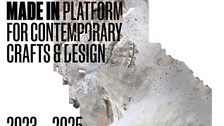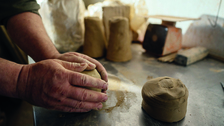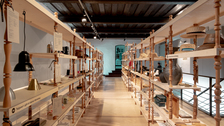MADE IN 2.0
Project description
As an integral part of cultural heritage, crafts have the potential to play a unique role in the transition to sustainable production methods relying primarily on local natural resources and skills. The objective of Made In 2.0 project is to preserve and record the invaluable crafts knowledge; facilitate knowledge transfer; develop and promote sustainable, collaborative, circular production models, products and prototypes. Design, with its creative potential and technological inventiveness, will be an essential part of this endeavour. There will be a strong emphasis on transdisciplinary methodologies.
Made In 2.0 builds on the results of a previous project (Made In: Crafts-Design Narratives, supported in 2018 by Creative Europe). The project activities consist of 1) mapping the crafts and natural resources of the partner countries, 2) knowledge transfer (between traditional craftspeople, contemporary designers and researchers): residencies, workshops, training courses and a summer school; 3) networking between experts: seminars, conferences and stakeholders’ events; 4) disseminating the results and awareness rising: publishing a book, a website with rich data collection and exhibitions of project outcomes. 10 partners from 6 countries will benefit from the project. More than 1000 craftspeople, designers, researchers and cultural professionals will benefit from the project and its results will be accessible to a wider audience.
The outputs will consist of 80 prototypes, materials and products, an expanded version of the www.madein-platform.com website; a book documenting the process and new production and educational models; and 5 exhibitions disseminating the project results. The envisaged results are better knowledge transfer between target audiences, transferable circular production models, raised awareness about the values of local production with emphasis on technological advancement and challenges of the 21st century.
Objective
- Innovation
Priorities
- Sustainability
- Digital access


